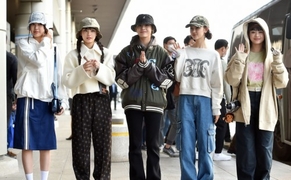 |
| Prof. Emanuel Pastreich |
Japan’s future role in global security is the most significant question in the minds of many in East Asia on the seventieth anniversary of the end of the Pacific War. Unfortunately, the drive of the conservatives in Tokyo to develop an assertive conventional military, something they consider to be a prerequisite to status as a “normal country” has resulted in an exponential rise in political tensions in East Asia and deep questions about what Japan’s long-term motives are.
Many within Japan itself question the rationale for such a rapid push to beef up the Japanese military, slough off the restrictions on military action dictated by the peace constitution and put Japan on a path to serving as a major supplier of weapons technology with a military that is activel engaged around the world.
Towards this goal Japan has embraced the ambiguous concept of “collective defense” which allows it to interpret its way out of the completely unambiguous Article Nine of the Constitution, “land, sea, and air forces, as well as other war potential, will never be maintained.”
Japanese conservatives suggest that Japan needs to shoulder its international responsibilities as a member of the G7 and become a “normal nation” that can project military force. Although, in fact, Japan, with the seventh largest military budget, has gone already far beyond any normal nation in terms of its spending.
I can certainly understand the desire of the Japanese to be leaders and play a central role in international affairs. After all, Japan has a powerful economy, some of the most advanced technology and a remarkable cultural tradition. But the Japanese need to ask themselves a serious question: will Japan be a more of a global leader if it abandons its peace constitution, or if it embraces it and enhances it?
Many frown on any suggestions that the peace constitution might be relevant to our age. Recently, Robert Dujarric, a leading Japan security expert, went as far as to write that, “Article 9…is incompatible with surviving in a dangerous world. It’s a noble aspiration but is not policy-relevant."
But what exactly is incompatible about the “peace constitution” and survival? Without any doubt the greatest threat today is from climate change, which will devastate the major coastal cities of Asia, dramatically reduce food productivity and make large regions of the world uninhabitable. A recent study headed by James Hansen, the former director of NASA's Goddard Institute for Space Studies, suggests that staying within the internationally agreed goal of keeping the planet within the 2-degree Celsius temperature warming limit will not avoid the melting of the Antarctic and Greenland glaciers. The inevitable result will be the flooding of numerous major cities, like Tokyo, Shanghai and Busan, with seawater.
A “peace constitution” could be a major advantage to Japan as it works together with nations around the world to respond to this existential threat. For example, the peace constitution would force the country to dedicate its resources to emerging non-security threats, thereby making it far more prepared for the challenges of climate change because it does not spend as much on tanks and planes and other technologies that are not relevant to survival in a warming world. The result would not be a Japan that is not punching its weight in military affairs, but rather a Japan that is truly a leader for the first time in security issues.
Japan already has the advanced technologies related to climate change adaptation and mitigation, solar and wind power, electric batteries, and other systems for responding to an increasingly inhospitable environment.
Rather than trying to model Japan’s security strategy on that of the United States, a country that is in serious trouble because of its military overextension, Japan should move in a more constructive direction, focusing on the one security threat that all experts agree on.
The Self-defense forces could be transformed into organizations that fully support the import of article nine, rather than contradict it, and thereby become models for positive institutional innovation.
For example, the future Ground Self-Defense Force could focus on the global battle against desertification and mass its resources to address the degradation of land and the destruction of forests around the world.
The Maritime Self-Defense Force could focus its attention on addressing the rising temperature of the ocean and the threat posed to the world by its growing acidification. The Self-Defense Force could also give attention to humanitarian relief related to climate change and stopping the dangerous overfishing of the oceans. Finally, the Air Self-Defense Force could devote its resources to the surveying the impact of global warming from the air and addressing problems related to the atmosphere.
It is no simple task to reinvent military. But it is not the first time in history that new circumstances have forced a radical rethinking of security priorities. Better to look at this challenge as an opportunity for Japan to return to its tradition of brave innovation and institutional reform. Finally, such a security strategy requires close engagement with nations throughout Asia and around the world that could make Japan the center of a new security network dedicated to this emerging threat.
The move beyond a conventional military is not an unrealistic pacifist impulse, but rather a historic decision by Japan to address the changing nature of security directly. Although Japan did not have had full autonomy to choose the peace constitution, Japan can chose its destiny this time, positioning itself to lead as nations around the world recalibrate to address the threat of climate change.
△ Emanuel Pastreich (Chinese: 贝一明; Korean: 임마누엘 페스트라이쉬, 李萬烈; Japanese: エマニュエル・パストリッチ; born Nashville, Tennessee, 1964) in an American academic mainly active in Korea. Pastreich is an associate professor at Kyung Hee University and director of The Asia Institute in Seoul, who writes on both East Asian classical literature and current issues in international relations and technology.
#japan #national liberation day #emanuel pastreich
Copyright by Asiatoday
Most Read
-
1
-
2
-
3
-
4
-
5
-
6
-
7





















